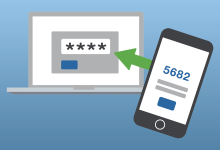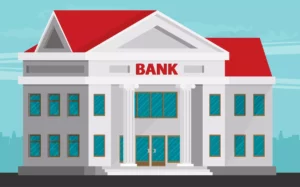How to Open a bank account in Romania for a legal person 2024

The banking sector in Romania is secure and poised to become a prominent market in Eastern and Central Europe. Presently, there is a greater presence of foreign-owned banks, particularly subsidiaries of reputable institutions from Italy, France, and Germany. Opening a bank account in Romania is a straightforward procedure, as most banks require similar sets of documents and official translations into Romanian for any documents issued in a foreign language.
So, if you are looking for guides on how to open a bank account in Romania for a legal person this 2024, then the steps below might prove useful.
But What is a Bank?
A bank is a financial institution that accepts deposits from the public and creates a demand deposit while simultaneously making loans. Lending activities can be directly performed by the bank or indirectly through capital markets. Whereby banks play an important role in financial stability and the economy of a country, most jurisdictions exercise a high degree of regulation over banks. Most countries have institutionalized a system known as fractional-reserve banking, under which banks hold liquid assets equal to only a portion of their current liabilities.
Banks borrow money by accepting funds deposited in current accounts, by accepting term deposits, and by issuing debt securities such as banknotes and bonds. Banks lend money by making advances to customers on current accounts, by making instalment loans, and by investing in marketable debt securities and other forms of money lending. Banks provide different payment services, and a bank account is considered indispensable by most businesses and individuals.
Here are some of the services that banks offer:
- Deposit accounts: Banks offer a variety of deposit accounts, including checking accounts, savings accounts, and certificates of deposit.
- Loans: Banks offer a variety of loans, including personal loans, car loans, and mortgages.
- Investments: Banks offer a variety of investment products, including stocks, bonds, and mutual funds.
- Other services: Banks also offer a variety of other services, such as wire transfers, bill pay, and safe deposit boxes.
Banks play an important role in the economy by providing a safe place to store money, making loans to businesses and individuals, and providing financial services.
How is the banking sector in Romania?
The banking sector in Romania is relatively small compared to other European countries, but it has been growing steadily in recent years. The sector is dominated by a few large banks, but there are also a number of smaller banks that are starting to gain market share.
The banking sector in Romania is well-regulated and has a good track record of financial stability. The National Bank of Romania (NBR) is the central bank of Romania and is responsible for regulating the banking sector. The NBR has a number of measures in place to protect depositors and to ensure the stability of the banking system.
The banking sector in Romania is a key driver of economic growth. Banks provide loans to businesses and individuals, which helps to finance investment and consumption. The banking sector also plays an important role in the payments system and in providing financial services to businesses and individuals.
The banking sector in Romania is facing a number of challenges, including:
- High non-performing loans (NPLs): The NPL ratio in Romania is one of the highest in Europe. This is a legacy of the financial crisis of 2008 and the subsequent economic recession.
- Low levels of financial literacy: Financial literacy is low in Romania, which means that many people do not understand the risks and benefits of banking products and services.
- Lack of competition: The banking sector in Romania is dominated by a few large banks. This lack of competition can lead to higher prices and lower quality of service for consumers.
Despite these challenges, the banking sector in Romania is expected to continue to grow in the coming years. The economy is growing, which will lead to increased demand for banking services. The NBR is also taking steps to address the challenges facing the sector, such as reducing NPLs and promoting financial literacy.
Here are some of the key challenges facing the banking sector in Romania:
- High non-performing loans (NPLs): The NPL ratio in Romania is one of the highest in Europe. This is a legacy of the financial crisis of 2008 and the subsequent economic recession. NPLs are loans that have been in default for more than 90 days. They can lead to a number of problems for banks, including:
- Losses: Banks can lose money when borrowers default on their loans.
- Reduced lending capacity: Banks may be reluctant to lend to new borrowers if they are worried about the risk of default. This can lead to a slowdown in economic growth.
- Higher interest rates: Banks may need to raise interest rates on loans in order to cover their losses. This can make it more expensive for businesses and individuals to borrow money.
- Low levels of financial literacy: Financial literacy is low in Romania, which means that many people do not understand the risks and benefits of banking products and services. This can lead to people making poor financial decisions, such as taking out loans that they cannot afford.
- Lack of competition: The banking sector in Romania is dominated by a few large banks. This lack of competition can lead to higher prices and lower quality of service for consumers.
The banking sector in Romania is facing a number of challenges, but it is also expected to continue to grow in the coming years. The economy is growing, which will lead to increased demand for banking services. The NBR is also taking steps to address the challenges facing the sector, such as reducing NPLs and promoting financial literacy.
Some popular Banks in Romania
As mentioned earlier, Romania is home to numerous banks. The ultimate decision of an investor may be influenced by their previous experience with a particular bank, either as a corporate or individual client. Additionally, the bank’s extensive network across the country can be a decisive factor, with some banks having a larger number of ATMs not only in Bucharest but also throughout the nation. Considering the number of branches and ATMs can be another important criterion when selecting the bank to collaborate with.
Promoted contents:
- Who is the founder of BBC?
- Toshiba Corporation: Who is the founder of Toshiba?
- Google Releases Android 14 Beta 3, With Platform Stability and New Features
- Who founded Nokia? Here is all you need to know
- Who is the founder of HTC Corporation?
- Fast Charging and Multiple Variants: Samsung’s Galaxy Tab S9+ and Tab S9 Ultra Unveiled
- Who is the founder of Realme?
- The Mobvoi TicWatch 5 Pro has been launched
- Rumours of the Galaxy S23 FE: A budget-friendly variant of the Galaxy S23
- The upcoming iOS 17 will add the ability to use your locked iPhone as a smart display
The list below includes some of the major banks present in Romania:
- Alpha Bank;
- BNP Paribas Fortis SA/NV;
- BRD – Groupe Société Générale;
- Citibank Europe PLC, Dublin;
- First Bank;
- ING Bank N.V., Amsterdam;
- Leumi Bank;
- Libra Bank;
- OTP Bank;
- Raiffeisen Bank;
- Romanian Commercial Bank – BCR;
- Transilvania Bank;
- UniCredit Bank.
What to take note of before opening a bank account in Romania
Opening a bank account in Romania can be a great way to manage your finances while you are living in the country. But you will have to bear in mind that, just like is the case with other countries, there are some important things you will want to consider before opening your bank account in Romania.
Here are some things to take note of before opening a bank account in Romania:
- Documents required: The documents required to open a bank account in Romania vary depending on the bank, but you will typically need to provide your passport, proof of address, and a tax residency certificate.
- Currency: You can open a bank account in Romania in either the Romanian lei or euros. Some banks also offer accounts in other currencies, such as US dollars or British pounds.
- Fees: Bank fees in Romania vary, so it is important to compare different banks before opening an account. Some common fees to look out for include monthly account fees, ATM fees, and wire transfer fees.
- ATM access: ATMs are widely available in Romania, but it is a good idea to check with your bank to see which ATMs they have an agreement with. This will help you avoid paying high ATM fees.
- Customer service: It is important to choose a bank with good customer service. This is especially important if you are not fluent in Romanian.
Here are some additional tips for opening a bank account in Romania:
- Do your research: Before you choose a bank, it is important to do your research and compare different banks. This will help you find the bank that best meets your needs.
- Visit the bank in person: Once you have chosen a bank, it is a good idea to visit the bank in person. This will give you a chance to meet with a representative and ask any questions you have.
- Be prepared to provide documentation: When you visit the bank, you will need to be prepared to provide documentation. This will typically include your passport, proof of address, and a tax residency certificate.
- Be patient: The process of opening a bank account in Romania can be slow. It is important to be patient and to follow the instructions of the bank representative.
How to Open a bank account in Romania for a legal person 2024
As earlier said, you will be needing some documents in order to open your Bank account in Romania. Outlined below are the primary documents required by banks to open a bank account in Romania for a locally registered company, such as a Romanian SRL (equivalent to a private limited liability company):
- The company’s constitutive documents (original copy).
- The original copy of the National Trade Register registration certificate.
- The confirmation of company details (certificate constructor), issued by the National Trade Register Office, attests to the company’s current situation.
- Identification documents of the company representative.
In some cases, the bank may also request a document certifying the appointed individual who will handle the bank account opening and other bank-related matters. This document is issued by the company’s General Shareholders’ Meeting. Additionally, the beneficial owner of the company will need to submit identification documents to open a bank account in Romania.
If a foreign national chooses to open a bank account in Romania through an appointed representative, they need to provide a power of attorney as supporting documentation, along with the representative’s identification documents.
A power of attorney can be specifically concluded in Romania for the sole purpose of opening a bank account. This document grants or limits the powers of the appointed representative concerning the chosen bank.
Our team can act on your behalf regarding the bank and submit all the necessary documents.
Some banks may offer a simplified bank account opening process for businesses. However, in such cases, the applicant must be the sole shareholder and administrator of the business.
Foreign companies (those not incorporated in Romania) must present the VAT registration certificate issued by their country of origin, in addition to the aforementioned documents, duly translated as previously mentioned.
Banks may request additional documents for bank account opening, depending on their need for sufficient client information. These documents should be presented in their original form or as certified copies, sometimes with an apostille.
Bank account fees vary according to the chosen bank branch. Here are a few examples of common fees:
- Opening a corporate bank account for a newly incorporated company: 0 lei (conditions may apply based on the bank’s policies; some banks encourage startups by offering attractive packages with zero costs for opening the account and for administration during the company’s first year of activity).
- Administration fee for the current bank account (only applicable in some banks): 20 lei.
- Fees for payments in lei and EUR to other bank accounts: 5-10 lei.
- Fee for ATM withdrawals (varying percentages): 0.35%, 1%, or 1.5% (depending on the bank).
Please note that the fees mentioned above are for informational purposes only, as banks may change their current fee structures.








